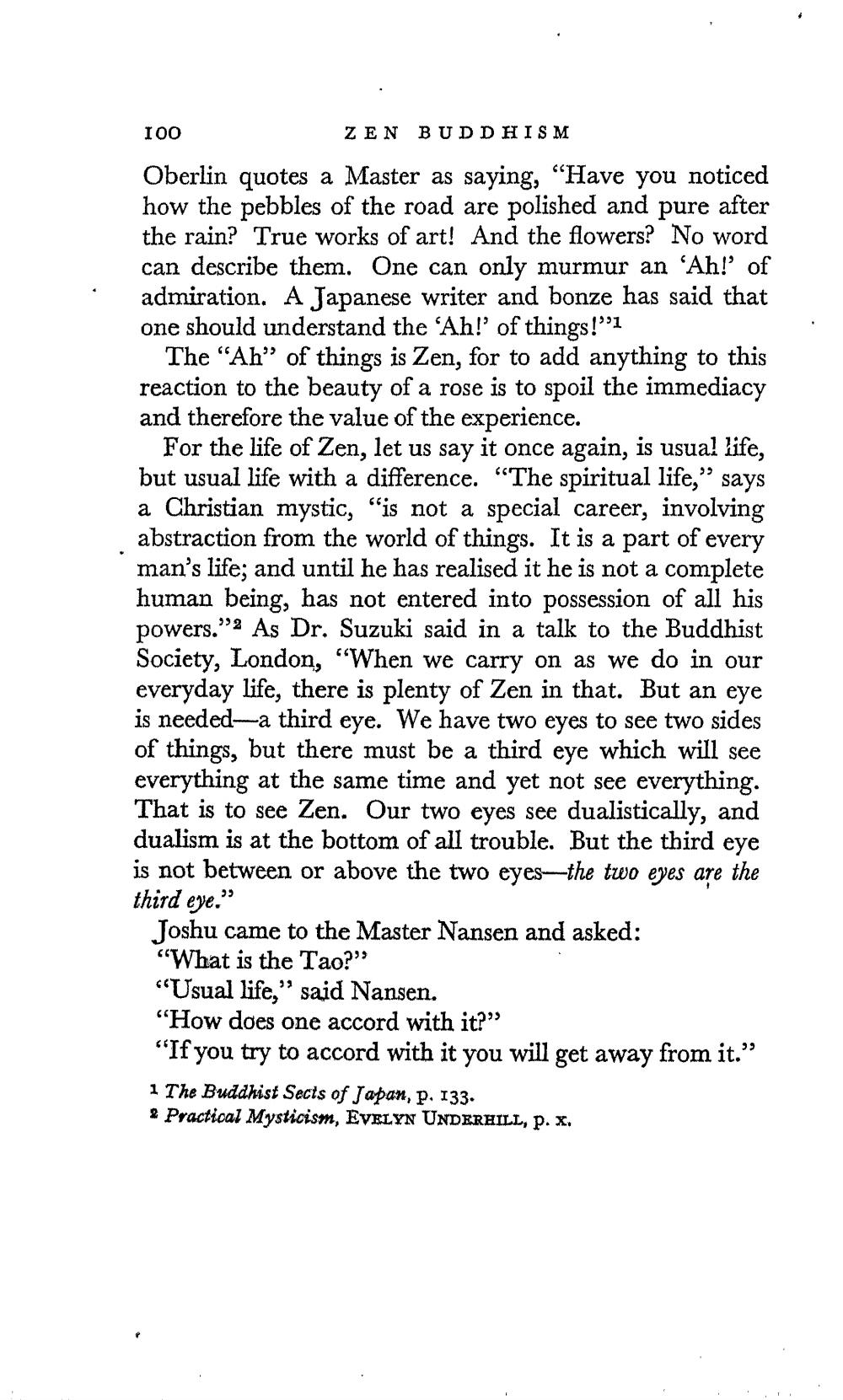________________
IOO
ZEN BUDDHISM Oberlin quotes a Master as saying, "Have you noticed how the pebbles of the road are polished and pure after the rain? True works of art! And the flowers? No word can describe them. One can only murmur an 'Ah!' of admiration. A Japanese writer and bonze has said that one should understand the 'Ah!' of things!"I
The "Ah" of things is Zen, for to add anything to this reaction to the beauty of a rose is to spoil the immediacy and therefore the value of the experience.
For the life of Zen, let us say it once again, is usual life, but usual life with a difference. “The spiritual life," says a Christian mystic, "is not a special career, involving abstraction from the world of things. It is a part of every man's life; and until he has realised it he is not a complete human being, has not entered into possession of all his powers."2 As Dr. Suzuki said in a talk to the Buddhist Society, London, "When we carry on as we do in our everyday life, there is plenty of Zen in that. But an eye is needed a third eye. We have two eyes to see two sides of things, but there must be a third eye which will see everything at the same time and yet not see everything. That is to see Zen. Our two eyes see dualistically, and dualism is at the bottom of all trouble. But the third eye is not between or above the two eyes-the two eyes are the third eye."
Joshu came to the Master Nansen and asked: “What is the Tao?" “Usual life," said Nansen. "How does one accord with it?" "If you try to accord with it you will get away from it."
1 The Buddhist Sects of Japan, p. 133. 2 Practical Mysticism, EVELYN UNDERHILL, P. x.




